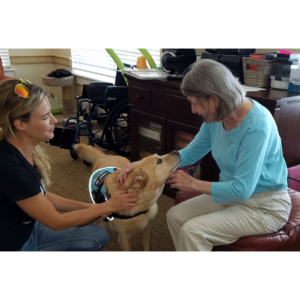Relationship-centered approaches to LTC delivery
For nearly 60 years Salem Home, a 146-resident personal care home has been delivering top quality care in the rural community of Winkler, located in southern Manitoba. In 2006, a serious management crisis jeopardized that tradition when virtually all of the senior personnel were replaced.
With a new team in place, Salem’s management and board began to pursue a straightforward, but challenging, goal: To achieve measureable improvements in care delivery standards and efficiency, beginning with our mission statement.
The board did a lot of visioning and we included our residents, staff and church leadership in the process. Once the mission statement was developed, we asked what model of care reflected it. We started running different scenarios and looked at practices elsewhere to determine our path to culture change.
Our search led us to the United Kingdom, where “person-centered care” (PCC) is becoming increasingly popular. In this approach, residents are seen as equal partners in planning, developing and assessing their care, to ensure that it best meets their needs. PCC puts residents and their families at the core of all decisions.
PCC is a great concept with a history of success, but we felt that it didn’t go far enough to meet our needs and goals. Using it as a starting point, we developed a new model, which we named Relationship-Centered Care (RCC).
The concept is simple. RCC focuses on staff/resident relationships, rather than task-based schedules. Care delivery is determined by resident choice in things like rising times and bedtimes, bathing schedules and menu choices. Instead of adhering to a rigid schedule, RCC provides meaningful relationships and activities in a friendly, comfortable environment.
Early risers can have their baths when they awaken, instead of at an appointed time. It’s not about making beds at a certain time. Relationships, rather than tasks, are the most important thing. The schedule is fluid, adapting to changing needs. Staff quickly appreciated the value of focusing on relationships with residents, rather than on specific tasks. Every task is still completed in a timely and efficient manner, but when and how it is done is determined by the residents’ needs, not an arbitrary schedule.
REDUCED STAFF TURNOVER
Some staff has had difficulty with the model. However, that problem solves itself, since staff members who can’t or won’t adapt their work style to the model usually leave on their own. Our staff turnover is very low, averaging about 3.4 percent. The new model has made us a more inviting place to work. Salem Home hasn’t advertised for a direct care staff position for five years.
Before we introduced RCC in 2008, Peter Wiebe of Geriatric Education and Consultation Services took staff and board members through a course in empathy training. He then travelled to the U.K. to study the Quality of Interactions Schedule (QUIS) measurement tool, before training Salem Home staff in its use. The tool measures the quality of social and personal care interactions, through detailed observation. The goal in using the QUIS tool is to provide the residents with a positive “lived experience.” Wiebe refined the QUIS tool to add measures for environmental and organizational health: Quality of Interactions Schedule-Environmental Health-Organizational Health (QUIS-EH-O)
INTERACTION IS CRUCIAL
In 2010, Wiebe trained 13 members how to observe activity and events in our home. Once trained, they watch all the interactions that occur in a public area, in two-hour periods. Each observer records everything seen and heard, at five-minute intervals. Eleven hours of observation is necessary to rate the quality of care and interactions.
We have learned a lot from the evaluation results, and had a few surprises too. For example, during the first evaluation, we recorded a two-hour period when some staff members kept walking past three residents, not once stopping to speak to them. One resident was asking for assistance to use the washroom and the request was ignored. In another instance, staff talked about the resident and her care while she sat listening. Events like this are only revealed through careful observation. Staff, volunteers, and family members now have a heightened awareness of their interactions with residents. Through this evaluation, we realized that staff required additional education related to disease processes to understand and respond to behaviors that frequently accompany those diseases.
TRACKING QUALITY
At first, QUIS-EH-O results improved steadily. In 2010, the home was at Level Four (below average care with key areas of care development required). In 2011, the evaluation process showed that Salem Home had moved to a Level Three (good care with some elements of person-centered care). It also showed a marked improvement in how staff relate to residents, moving from a score of 4 to a score of 3 on a 1-6 scale, with a score of 1 being the most desired score.
Have we perfected RCC? No. In 2012, our QUIS scores went back to a Level Four. The good news is that we know why our score declined. In this case, it was primarily because of negative interactions between volunteers/family and residents, and incidents where staff “talked over” the residents. As our experience shows, achieving optimal standards of care delivery is a journey, but a journey well worth taking.
PROMOTING RCC
Salem Home has presented the RCC model at Alzheimer Society conferences in Canada. We’ve also had several site visits from representatives of other LTC facilities. We are now spreading the word through North America at seminars and conferences, and we are in the first stages of creating an educational program to make RCC accessible to a much wider audience.
RCC was started as a philosophical change to our care model. We didn't really expect to get measurable data, but it’s very welcome. The program has been cited as a leading practice in Canada and we hope that by spreading the word, it can be worldwide.
Making RCC work for youIf you’re interested in making Relationship-Centered Care work in your operation, you will need:
|
Sherry Janzen is CEO of Salem Home, Inc., in Manitoba, Canada. She can be reached at sjanzen@salemhome.ca.
I Advance Senior Care is the industry-leading source for practical, in-depth, business-building, and resident care information for owners, executives, administrators, and directors of nursing at assisted living communities, skilled nursing facilities, post-acute facilities, and continuing care retirement communities. The I Advance Senior Care editorial team and industry experts provide market analysis, strategic direction, policy commentary, clinical best-practices, business management, and technology breakthroughs.
I Advance Senior Care is part of the Institute for the Advancement of Senior Care and published by Plain-English Health Care.
Related Articles
Topics: Activities , Articles , Executive Leadership











